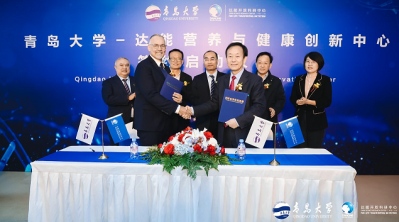Science Shorts: South Korea's AI-based food imports, curcumin for weight loss, magnesium for cognition and more feature in our round-up

High-tech inspections: South Korea deploys AI in national food imports plan to boost safety
The South Korean government has announced a new food imports plan to be enforced in 2023 which will involve the use of Artificial Intelligence (AI) to improve its monitoring and inspections processes.
South Korea’s Ministry of Food and Drug Safety (MFDS) new 2023 Imported Food Customs Clearance Inspection Plan features the use of AI that is expected to be made live in the second half of 2023.
“MFDS conducts food import inspections at customs based on the analysis on product import trends, test and inspection results, domestic and international hazard information and public interest so as to select key inspection targets and items requiring more stringent food safety management,” MFDS Minister Oh Yoo-gyeong said via a formal statement.
Curcumin extract significantly reduces BMI, body weight, waistline in obese or diabetic adults – review
Supplementation of curcumin extract has shown to reduce body mass index (BMI), body weight, as well as the waistline more effectively than whole compounds or bioavailability-enhanced forms, according to a meta-analysis conducted by researchers from Thailand.
The benefit of curcumin extract supplementation was most significant in individuals with obesity or type II diabetes mellitus (T2DM).
Writing in The American Journal of Clinical Nutrition, the researchers from Khon Kaen Hospital and Mahidol University recommended that curcumin supplement together with lifestyle modification “should be an option for weight reduction”.
Magnesium and cognition: Higher dietary intake linked to better brain health during ageing - Australian study
Higher magnesium intake in daily diet leads to better brain health as people age, according to new research from the Neuroimaging and Brain Lab at The Australian National University (ANU).
The researchers say increased intake of magnesium-rich foods such as spinach and nuts could also help reduce the risk of dementia, which is the seventh biggest killer globally.
The study of more than 6,000 cognitively healthy participants based in the United Kingdom aged 40 to 73 found people who consume more than 550 milligrams of magnesium each day have a brain age that is approximately one year younger by the time they reach 55 compared with someone with a normal magnesium intake of about 350 milligrams a day.
Medium GI rice intake reduces insulin therapy in women with gestational diabetes – Thailand study
The intake of rice with a medium glycemic index (GI) has shown to reduce the need for insulin therapy among women with gestational diabetes, according to a four-week clinical trial conducted in Thailand.
Writing in Clinical Therapeutics, researchers from Thammasat University Hospital compared the effects of consuming rice with a medium GI of 56.9 and high GI of 80.1.
Findings showed that there was a significantly fewer number of women in the low GI rice group that required insulin therapy.
What is palm oil sustainability? Forget premiumisation and complex certifications say experts
The age-old ideas that palm oil sustainability must involve complex certification processes and premium price points needs to be scrapped in order to truly achieve sustainable goals throughout the entire value chain, according to industry experts
For decades the concept of sustainability in the sector has been linked to expensive certification processes as well as higher price points.
But for sustainable palm oil to truly make its mark in the industry, there is a need to remove the shackles imposed by these ‘outdated concepts’, according to a panel of experts that convened at the recent Roundtable on Sustainable Palm Oil (RSPO) annual roundtable and symposium.















